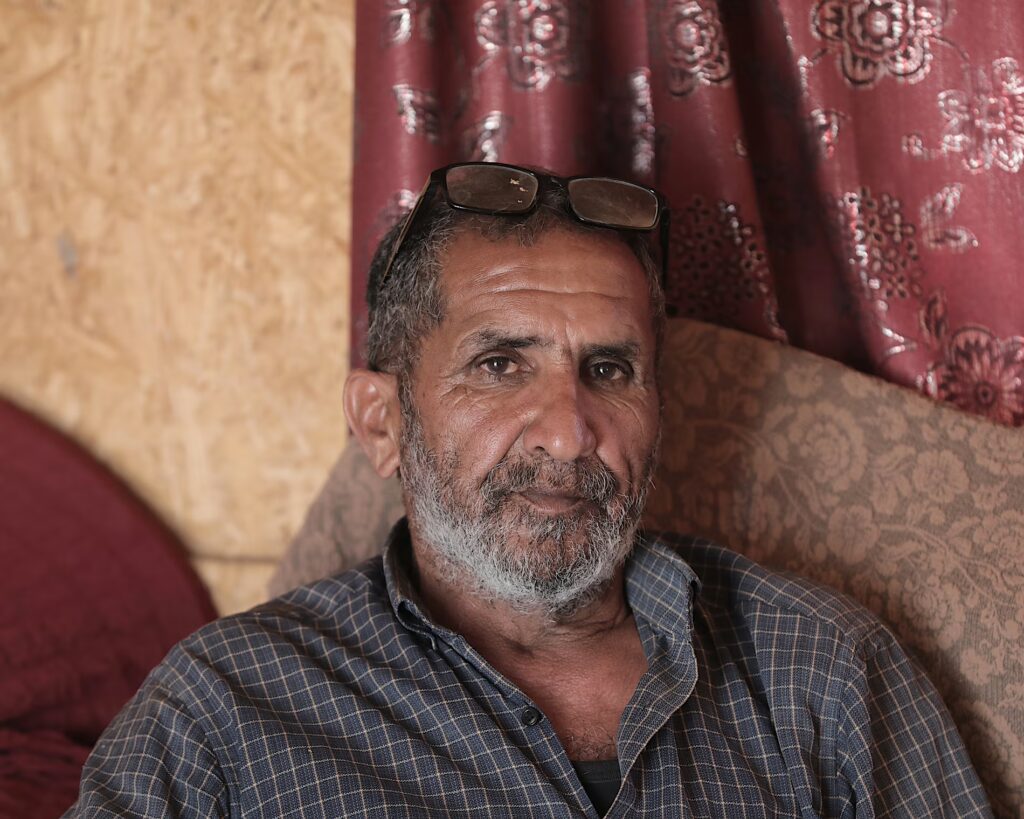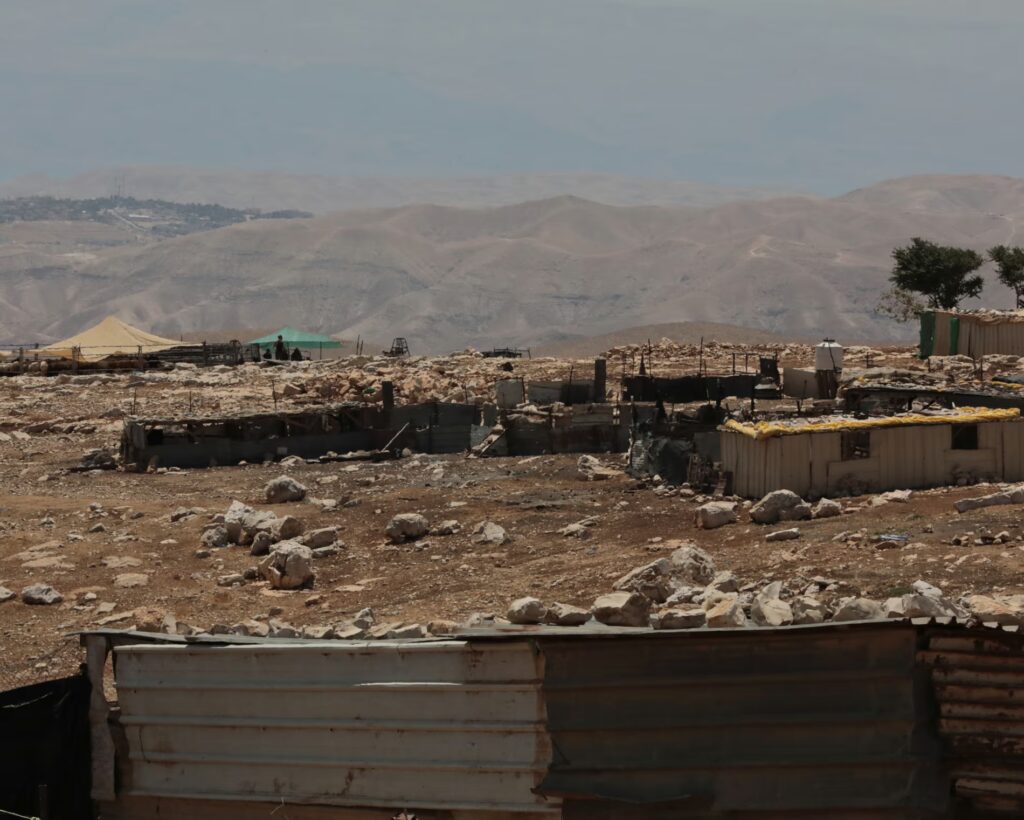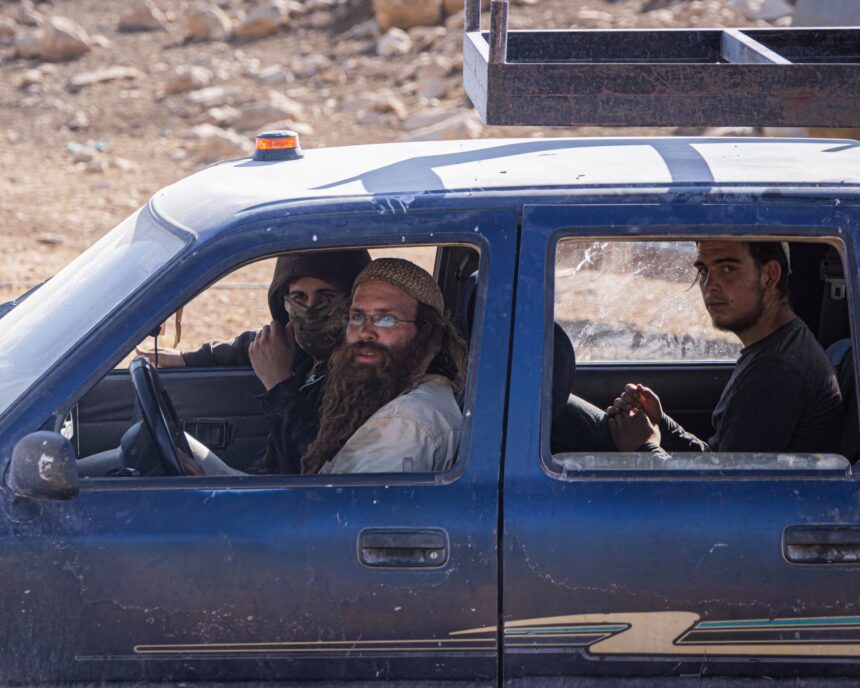UK-Sanctioned Israeli Settlers Escalate West Bank Tensions Near Mughayyir al-Deir
In the latest escalation of settler aggression in the occupied West Bank, two Israeli settlers recently sanctioned by the UK—Neria Ben Pazi and Zohar Sabah—have intensified efforts to displace Palestinian residents of Mughayyir al-Deir. These individuals arrived at an illegal outpost built just meters from a Palestinian home, sparking fresh fears and triggering displacement among local families.
UK Sanctions Fail to Deter West Bank Settler Actions
The UK’s targeted sanctions were introduced to curb such violence, yet their presence near the new outpost highlights a growing sense of impunity. Neria Ben Pazi is affiliated with “Neria’s Farm,” one of four Israeli entities sanctioned by the British government. The move came alongside the UK’s decision to suspend free-trade talks with Israel over Gaza-related humanitarian concerns.
British Foreign Secretary David Lammy issued a clear call to action: “The Israeli government has a responsibility to intervene and halt these aggressive actions.” Still, footage and eyewitness accounts confirm that Ben Pazi has been making repeated visits to the disputed outpost, transporting supplies and bolstering settler presence in the area.
Documented Presence of Sanctioned Settlers Raises Alarm
Matching this escalation, Zohar Sabah, also newly sanctioned, was recorded at the site just one day after the UK announced its punitive measures. He is accused of “supporting acts of aggression and violence against Palestinians” and now appears to be actively reinforcing the encampment.
The outpost, positioned near a key sheep enclosure, now serves as a hub of intimidation, symbolizing how sanctioned settlers continue to act with little visible restraint. Its proximity to Palestinian homes has led multiple families to abandon the area, fearing escalation and violence.
Local Activists and International Watchdogs Urge Intervention
The boldness of these sanctioned settlers is viewed by many rights groups as a direct consequence of lack of enforcement. Despite sanctions and international outcry, neither Israeli law enforcement nor military forces have dismantled the encampment, leaving residents increasingly vulnerable.
Human rights monitors warn that settler outposts like this are part of a wider campaign to shift demographics and control over occupied territories. The case of Mughayyir al-Deir now joins a long list of documented land seizures, harassment, and forced displacement facilitated under the cover of state inaction.

Palestinian Families Forced to Flee Amid Settler Expansion and Threats
“I haven’t slept since they came, and the children are terrified,” said Ahmad Sulaiman, a 58-year-old father of eleven. His home lies just meters from the newly built settler encampment. By Thursday, his family was hurriedly packing their belongings, unsure of where they would go. “The settlers told me: ‘This is our home.’ There is nothing I can do. They have guns and other weapons,” he said, his voice heavy with fear and defeat.
Israeli Officials Offer No Resistance as Far-Right Politicians Visit Illegal Site
Rather than facing enforcement or removal, the settlers have escalated their presence. Footage shows far-right Knesset member Zvi Sukkot visiting the illegal outpost, offering symbolic support. On Israeli TV, Sukkot chillingly declared, “Everyone has got used to the idea that we can kill 100 Gazans in one night during a war and nobody in the world cares,” emboldening the settlers with a sense of total impunity.
This political backing underscores why Palestinian families like the Sulaimans feel they have no protection. The lack of state intervention and open alignment with extremist settlers is heightening the fear across communities in the occupied West Bank.
Experts Warn of Broader Campaign of Ethnic Displacement
The situation in Mughayyir al-Deir represents more than local harassment—it signals a larger campaign of systemic forced displacement. According to Yonatan Mizrachi of Peace Now’s Settlement Watch, the settlers are acting with total confidence: “It shows the settlers’ lack of fear, and the understanding that they can do what they like; they can just set up in the Palestinian community.”
Since the October 2023 Hamas attacks, this aggression has intensified. Data from B’tselem, Israel’s leading human rights group, confirms that over 1,200 Palestinians, nearly half of them children, have been expelled from 20 communities. Many of these families, like the Sulaimans, are experiencing displacement for the second time, having already lost their ancestral homes during the 1948 nakba.

Settler Outposts Persist Despite Violations of Law
Though illegal under both international and Israeli law, settler outposts like the one in Mughayyir al-Deir are rarely dismantled. The Israeli army has distanced itself from any recent operations, with a spokesperson stating, “The alleged evacuation was neither conducted by [IDF troops] nor carried out with their approval.” This official stance does little to reassure the Palestinian residents under direct threat.
The reality is that these outposts remain and expand freely, sustained by silence, inaction, and indirect state support. Their unchecked growth underscores the gap between formal legal frameworks and the ground realities in the occupied territories.
Ben Pazi Operates Freely Despite Sanctions and Bans
Neria Ben Pazi, long under scrutiny by the UK and US governments for acts of violence—including a 2023 assault near Wadi as-Seeq—has continued his activities undeterred. Although banned from the West Bank in 2023 by Israeli Maj Gen Yehuda Fuchs, Ben Pazi now openly coordinates logistics, infrastructure, and settler mobilization.
Witnesses report Ben Pazi was recently seen greeting men in military-style uniforms, raising troubling questions about unofficial paramilitary involvement. Activists note the eerie overlap between state silence and settler militarization, even as official channels deflect accountability.
Both Ben Pazi and Zohar Sabah, also under sanctions, refused to comment. Meanwhile, the Israeli military referred enforcement responsibilities to political authorities, effectively washing its hands of the matter.
Government Policy Enables a Systematic Campaign of Displacement
According to Shai Parnes of B’tselem, these incidents are not isolated: “What is happening is not just about a violent threat in this place or that; it’s all part of a well-defended and subsidised policy run by the government.” His remarks point to the structural nature of the settler expansion project, one that functions with government support and institutional shielding.
This entrenched system of state-enabled dispossession, now under increased international scrutiny, shows few signs of retreat. For Palestinian families, the consequence is not just displacement—it is the erasure of future and history alike.





